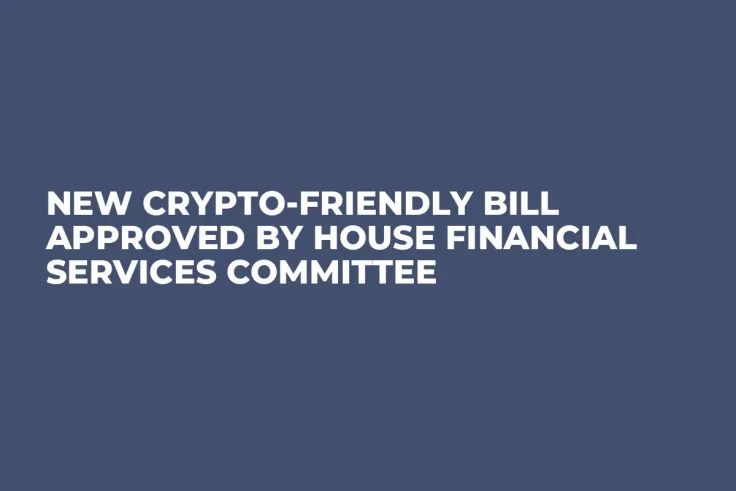
Disclaimer: The opinions expressed by our writers are their own and do not represent the views of U.Today. The financial and market information provided on U.Today is intended for informational purposes only. U.Today is not liable for any financial losses incurred while trading cryptocurrencies. Conduct your own research by contacting financial experts before making any investment decisions. We believe that all content is accurate as of the date of publication, but certain offers mentioned may no longer be available.
A new piece of legislation geared toward providing clarity for the burgeoning cryptocurrency industry has successfully passed through the U.S. House Financial Services Committee. The bill was approved with a 35-15 vote, with backing from a select group of politicians who have recognized the current legislative inadequacy.
The chairman, Patrick McHenry from North Carolina, expressed the transformative potential of the legislation, labeling it as a financial revolution. This nod of approval is crucial for crypto advocates, who have long contended that the existing regulatory landscape is ambiguous and inhibits the industry's growth.
The legislation encompasses rules for crypto firms, outlining conditions for registration with either the U.S. Securities and Exchange Commission (SEC) or the Commodity Futures Trading Commission (CFTC). It further proposes a process for digital-asset issuers to certify a blockchain network's sufficient decentralization, which would shift the oversight of related tokens to the CFTC.
Notably, the bill also attempts to harmonize with the recent federal ruling in the SEC's case against Ripple Labs Inc., suggesting that a digital asset does not automatically qualify as a security if sold as part of an investment contract.
Despite its success in the House Financial Services Committee, the bill's future remains uncertain, facing potential roadblocks in the Democrat-led Senate. Critics of the legislation, including SEC Chair Gary Gensler and several House Financial Services Committee Democrats, argue that existing securities laws sufficiently cover cryptocurrencies, and the firms are simply noncompliant.
Nonetheless, this bill represents a significant step toward addressing the regulatory ambiguity surrounding the crypto industry in the United States. The passing of such legislation could help solidify the U.S.'s position in the global cryptocurrency market and prevent the offshoring of crypto companies in search of clearer regulatory environments.


 Vladislav Sopov
Vladislav Sopov Dan Burgin
Dan Burgin